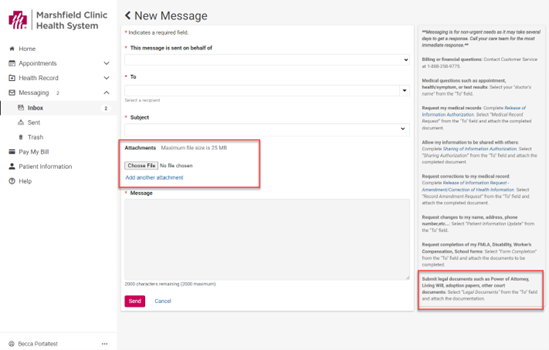Step 1: Decide you want an advance directive
You are 18 years old, and you live in a state where your family cannot make health care decisions for you legally, such as in Wisconsin. You decide now is the time to start thinking about filing an advance directive.
Step 2: Ready to answer questions about your medical wants and wishes in writing
You can start to think about your values and wishes when it comes to health care decisions. Questions to ponder are:
- What are your goals and preferences?
- What things are important to you for comfort, such as warm blankets, best position in bed?
- If there is time, who should I include in my care decisions?
- If I am near death or cannot communicate, I want to give my friends and family these personal messages.
Step 3: Identify a trusted person who can make your health care decisions.
A health care agent is a person who makes health care decisions when you can’t make your own choices. Select an agent you trust and who you shared conversations with about your wishes. You also can name alternate health care agents who can make decisions if the person you named first or second cannot or is not willing to make those decisions.
Step 4: Download advance directive.
Download an advance directive to complete and contact your health care team with any questions along the way.
Step 5: Find witnesses.
In Wisconsin, you must sign your advance directive in the presence of two witnesses who meet the qualifications (details in FAQ section). A notary public cannot be used instead of the two witnesses.
Step 6: Have a conversation
Talk to the rest of your family and close friends who might be involved if you have a serious illness or injury. Make sure they know who your agent(s) is, and what your preferences are.
Step 7: File your Advance Directive
If you have a My Marshfield Clinic account, you can attach your completed document to be routed to Health Information Management (HIM). The documentation must be saved on the device you are using to attach.
Once logged into your account, select Messaging – Inbox – Send a Message.
From there, select your name in the “on behalf of” section and enter “Legal Documents” from the dropdown in the “To” field. Add a free text subject or select a subject from the drop down and add your attachments (advance directive documentation). You are required to enter text into the Message field and tap Send.

You also have the option to email your completed advance directive to Health Information Management at mclhim.consents@marshfieldclinic.org. If you prefer to send via mail, you can mail your to Health Information Management, HM2, Marshfield Clinic Health System, 1000 North Oak Avenue, Marshfield, WI 54449, to be filed with Marshfield Clinic Health System.
Step 8: Review and update It is recommended to review your advance directive annually or update when any of the “five D’s” occur:
- Decade – when you start each new decade of your life
- Death (or Dispute) – when a loved one or a health care agent dies (or disagrees with your preferences)
- Divorce – when divorce (or annulment) happens
- Diagnosis – when you are diagnosed with a serious illness
- Decline – when your health gets worse, especially when you are unable to live on your own.
If your goals and preferences change, talk to your agent(s), your family, your provider (everyone who has copies of this advance directive). Then, complete a new advance directive.